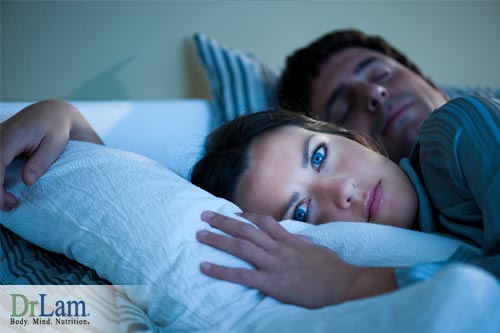 A common cause of insomnia is the malfunction of the Hypothalamus-Pituitary-Adrenal (HPA) axis. Adrenal glands are an integral part of this axis. Insomnia leading to chronic tiredness is therefore a classic sign of Adrenal Fatigue.
A common cause of insomnia is the malfunction of the Hypothalamus-Pituitary-Adrenal (HPA) axis. Adrenal glands are an integral part of this axis. Insomnia leading to chronic tiredness is therefore a classic sign of Adrenal Fatigue.
The main complaints for insomnia include: difficulty falling asleep (sleep onset insomnia), disturbed sleep, being easily woken up at night, difficulty falling back to sleep (sleep maintenance insomnia), feelings of not being rested, leading to chronic tiredness in the morning, starting slower in the morning, and feeling fatigued during the day.
Difficulty falling asleep is called sleep onset insomnia (SOI). It is important that cortisol is at its highest level in the morning and at its lowest level at night for normal sleep to occur, along with waking up refreshed and energized. When the cortisol balance is off, sleep patterns can be affected. High cortisol levels are typical of people suffering from Adrenal Fatigue, especially in the early stages. This happens when the adrenals are on over-drive, putting out excessive cortisol throughout the day in order to deal with the constant stress. Some of the excess cortisol even carries into the night and this will affect the ability to fall asleep, leading to SOI. At the same time, stress triggers the adrenal medulla, which then produces excessive amounts of adrenaline (a hormone responsible for the fight or flight response). A high adrenaline level can independently disturb sleep patterns as the body is on full alert. This state is commonly called being wired. High cortisol and high adrenaline can occur simultaneously and this is common for those who suffer from Adrenal Fatigue.
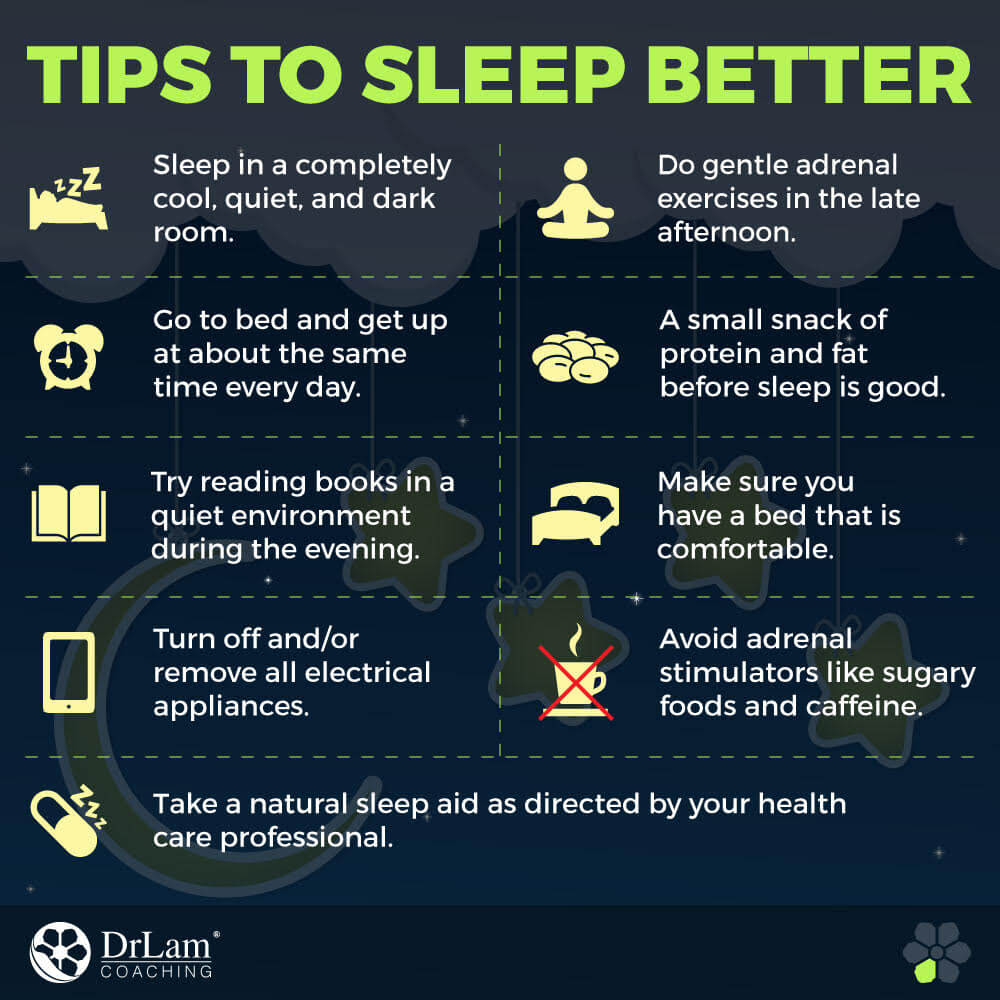
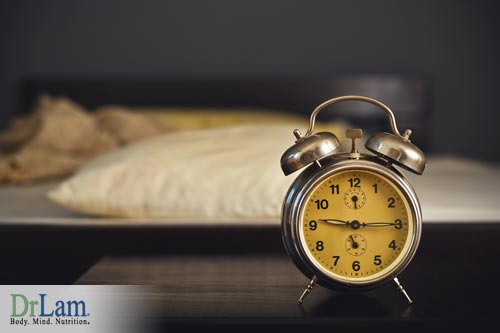 Go to bed and get up at about the same time every day, even on the weekends. Sticking to a schedule helps reinforce your body's sleep-wake cycle and can help you fall asleep more easily at night. Do the same things each night to tell your body it's time to wind down. This may include taking a warm bath or shower, reading a book, or listening to soothing music. Relaxing activities done with lowered lights can help ease the transition between wakefulness and sleepiness.
Go to bed and get up at about the same time every day, even on the weekends. Sticking to a schedule helps reinforce your body's sleep-wake cycle and can help you fall asleep more easily at night. Do the same things each night to tell your body it's time to wind down. This may include taking a warm bath or shower, reading a book, or listening to soothing music. Relaxing activities done with lowered lights can help ease the transition between wakefulness and sleepiness. If you don't fall asleep, get up and do something else like Adrenal Restorative Exercises or Adrenal Breathing Exercises. Go back to bed when you're tired. Don't agonize over falling asleep. The stress will only prevent sleep and lead to chronic tiredness. It is common for many people with Adrenal Fatigue to feel wired and tired at the same time. If your mind is running and cannot stop, use the energy to think positive thoughts. Set aside worries and any negative thoughts, get into the habit of positive thinking at bedtime, and occupy your mind with images of relaxing places or happy events.
If you don't fall asleep, get up and do something else like Adrenal Restorative Exercises or Adrenal Breathing Exercises. Go back to bed when you're tired. Don't agonize over falling asleep. The stress will only prevent sleep and lead to chronic tiredness. It is common for many people with Adrenal Fatigue to feel wired and tired at the same time. If your mind is running and cannot stop, use the energy to think positive thoughts. Set aside worries and any negative thoughts, get into the habit of positive thinking at bedtime, and occupy your mind with images of relaxing places or happy events. Sleep maintenance insomnia is when you are able to fall asleep but tend to wake up in the middle of the night and are unable to fall back to sleep. This is usually due to a number of factors triggering sleep onset insomnia as well as metabolic imbalances such as sugar and insulin dysregulation that happens during sleep. Sugar and insomnia often are linked. With excessive stress during the day, the body can sometimes fall asleep despite high cortisol and adrenaline levels simply because of the magnitude of physical tiredness. In other words, the physical tiredness often overwhelms the elevated adrenaline and cortisol levels. The body needs a break. It crashes and you go to sleep. You can be wired and tired but also able to fall asleep for a few hours. However, the cortisol and adrenaline remain high during this time, so the body is awakened by these sustained high levels in the middle of the night as the physical tiredness is reduced by a few hours of rest, leading to sleep maintenance insomnia. Once awakened, it is hard to fall back to sleep.
Sleep maintenance insomnia is when you are able to fall asleep but tend to wake up in the middle of the night and are unable to fall back to sleep. This is usually due to a number of factors triggering sleep onset insomnia as well as metabolic imbalances such as sugar and insulin dysregulation that happens during sleep. Sugar and insomnia often are linked. With excessive stress during the day, the body can sometimes fall asleep despite high cortisol and adrenaline levels simply because of the magnitude of physical tiredness. In other words, the physical tiredness often overwhelms the elevated adrenaline and cortisol levels. The body needs a break. It crashes and you go to sleep. You can be wired and tired but also able to fall asleep for a few hours. However, the cortisol and adrenaline remain high during this time, so the body is awakened by these sustained high levels in the middle of the night as the physical tiredness is reduced by a few hours of rest, leading to sleep maintenance insomnia. Once awakened, it is hard to fall back to sleep.
Another factor that contributes to SMI is metabolic dysregulation. Those who suffer from advanced Adrenal Fatigue often have concurrent metabolic imbalances such as insulin dysregulation and hypoglycemia. When blood sugar drops below a certain level during sleep due to lack of glucose supplied from food, it can activate the SNS, leading to adrenaline release and waking up. Blood sugar can be normal by conventional laboratory standards but the body may be extremely sensitive to the roller-coaster ride of the blood sugar level so that even a small drop within normal ranges during the night can trigger awakening. This is often accompanied by symptoms such as heart palpitations, cold sweats, and nightmares. Even mild drops in blood sugar and insomnia may occur.
In addition to practicing the good sleep habits and protocol for sleep onset insomnia, we need to make sure that the glucose level is stabilized throughout the evening to avoid sleep maintenance insomnia. When your blood sugar level falls, healthy adrenals restore the levels back to normal. If the blood sugar levels are not stabilized, there will not be optimal results when attempting to correct the adrenal status. Here are the dietary guidelines to stabilize your blood glucose levels:
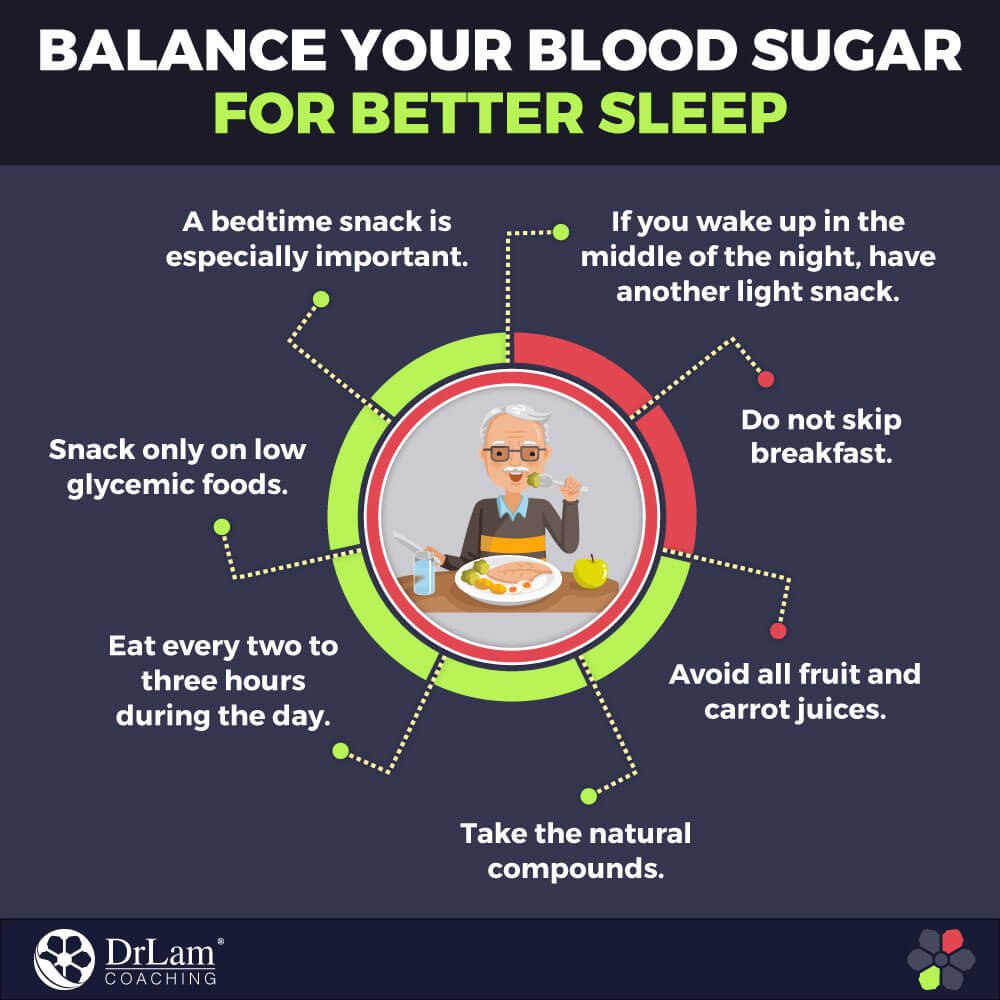
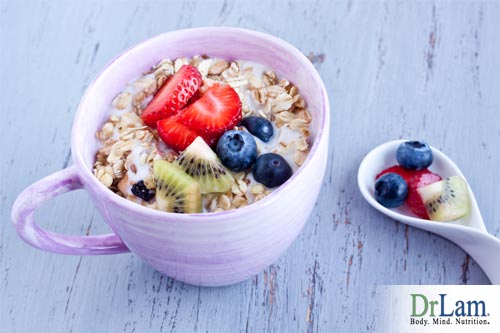 Do not skip breakfast. In fact, it should be the biggest meal. You should not wake up feeling hungry, as this is a sign that your blood sugar may be low during sleep. Eat a high quality protein-based breakfast, not just bread and cereal. Eggs are an excellent source of protein and unoxidized cholesterol as long as it is not over-cooked.
Do not skip breakfast. In fact, it should be the biggest meal. You should not wake up feeling hungry, as this is a sign that your blood sugar may be low during sleep. Eat a high quality protein-based breakfast, not just bread and cereal. Eggs are an excellent source of protein and unoxidized cholesterol as long as it is not over-cooked.Sleep issues may take some time to resolve, so be patient. Stick with your routine and slowly you will begin to experience the benefits of a good night's sleep.
There is a large variety of sleep aids available. Some of the sleep aids may help while others may not. Each sleep aid nutrient has specific pathways that work best for different people. Gaba, for example, works better for those with Adrenal Fatigue and are adrenal dominant, while 5-HTP is usually more effective for the thyroid dominant type. Because each body behaves differently in response to different types of sleep aid nutrients and the predominance of paradoxical reactions in Adrenal Fatigue, the experienced clinician will employ different combinations of natural compounds for maximum effect. Because of the multiple pathways involved in the sleep mechanism on different parts of the mind and body, some trial and error is usually required.
You may want to find out what is the underlying issues that cause you to have the vivid dream.
Seriphos may help balance or lower cortisol for some that have high cortisol level with AFS. Some people, however, can have paradoxical reactions, with the opposite outcome.